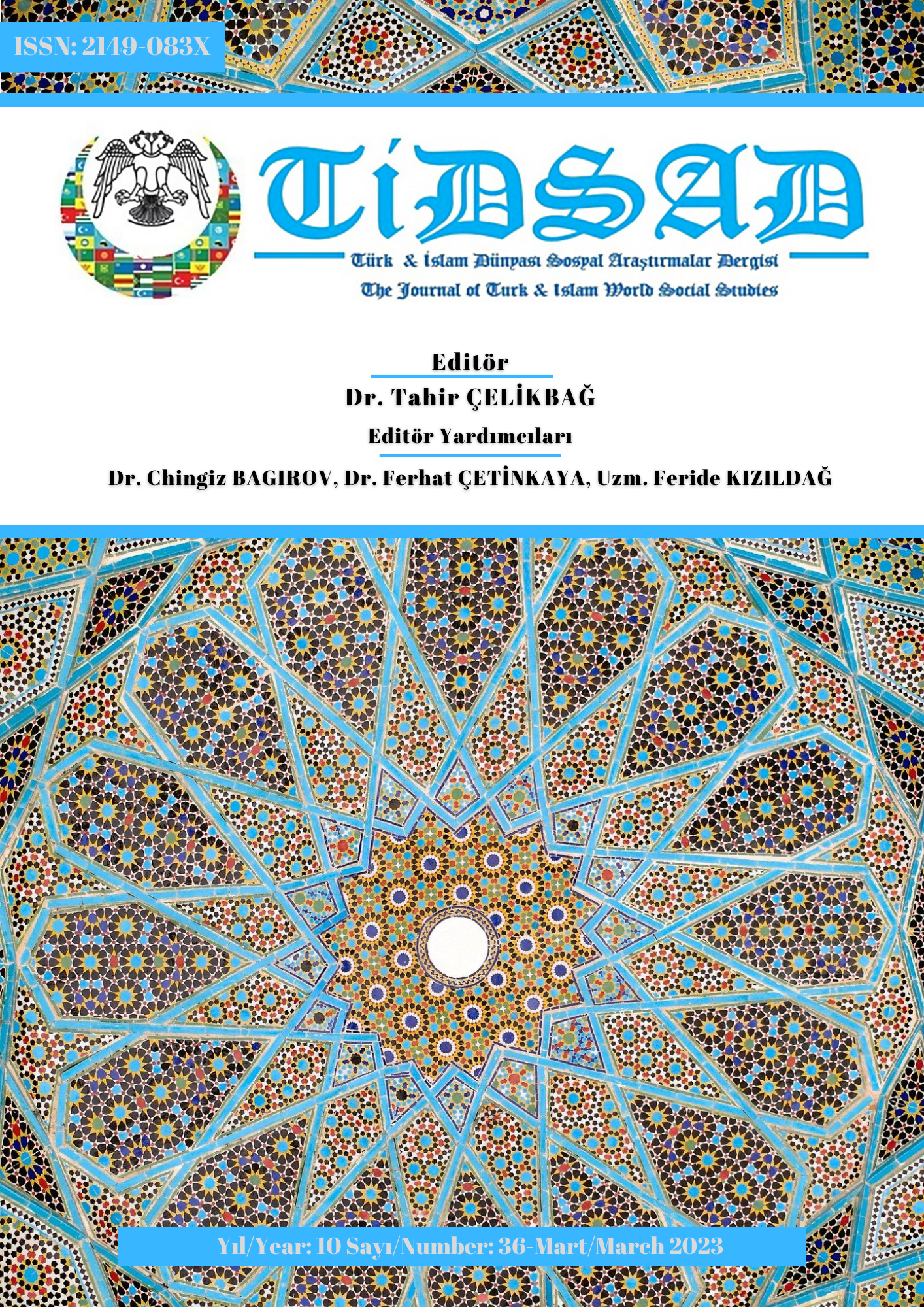Author :
Abstract
Divan şiirinde maşuk ve mey kavramları kadın, padişah, çoban, esnaf vb. Osmanlı toplumunda her kesimden şairler için her zaman en önemli malzemeler olmuştur. Şarap ve sevgili kavramları en yüksek dinî ve ilmî otoriteyi temsil eden şeyhülislam şairler tarafından da kendilerine özgü bir anlayışla ve Divan şiiri geleneği de göz önünde bulundurularak çeşitli imgelerle aktarılmıştır. Osmanlının ciddi kurumlarından biri olan şeyhülislamlık makamında oturan bazı şeyhülislamların usta divan şairleri gibi şiir yazmaları dikkate değer bir konudur. En zarif söyleyişlerle sevgili ve şarap kavramlarına şiirlerinde yer veren şeyhülislam şairler, derin tasavvufî manaları da içerecek şekilde imgeler oluşturarak gelenek çerçevesinde kendilerini ifade etmeyi amaçlamışlardır. Bu çalışmayla; şairlik yetenekleri pek bilinmeyen, beşeri olarak algılanabilecek bir aşkı ve maşuku öven, meyden, meyhaneden söz eden, duygularını açık veya örtük bir şekilde şiirle ifade etmekten, yanlış anlaşılmaktan korkmayan divan sahibi şeyhülislam şairlerin divanlarından seçilen kimi beyitlerinin divan şiir geleneği bağlamında irdelenip divan şiir geleneği ile tasavvufî anlayışın şeyhülislamlar üzerindeki etkisini ortaya koyma amaçlanmaktadır.
Keywords
Abstract
In Divan poetry, the concepts of beloved and wine have always been the most important materials for poets from all walks of life in Ottoman society, whether they are women, sultans or shepherds. The concepts of wine and lover were conveyed by the shaykh al-Islam poets, who represent the highest religious and scientific authority, with a unique understanding and with various images taking into account the divan poetry tradition. It is noteworthy that some of the shaykh al-Islams who sat in the office of shaykh al-Islam, one of the serious institutions of the Ottoman Empire, wrote poems like master divan poets. The shaykh al-Islam poets, who included the concepts of lover and wine in their poems with the most elegant expressions, aimed to express themselves within the framework of tradition by creating images in a way that included deep Sufi meanings. With this study; who praises a love and lover whose poetic talents are not well known, which can be perceived as human; It is aimed to examine some of the couplets selected from the divans of the divan owner şeyhülislam poets who talk about meyden and meyhane, who are not afraid of expressing their feelings openly or implicitly with poetry and being misunderstood, in the context of divan poetry tradition and to reveal the effect of divan poetry tradition and mysticism understanding on shaykh al-Islams.





